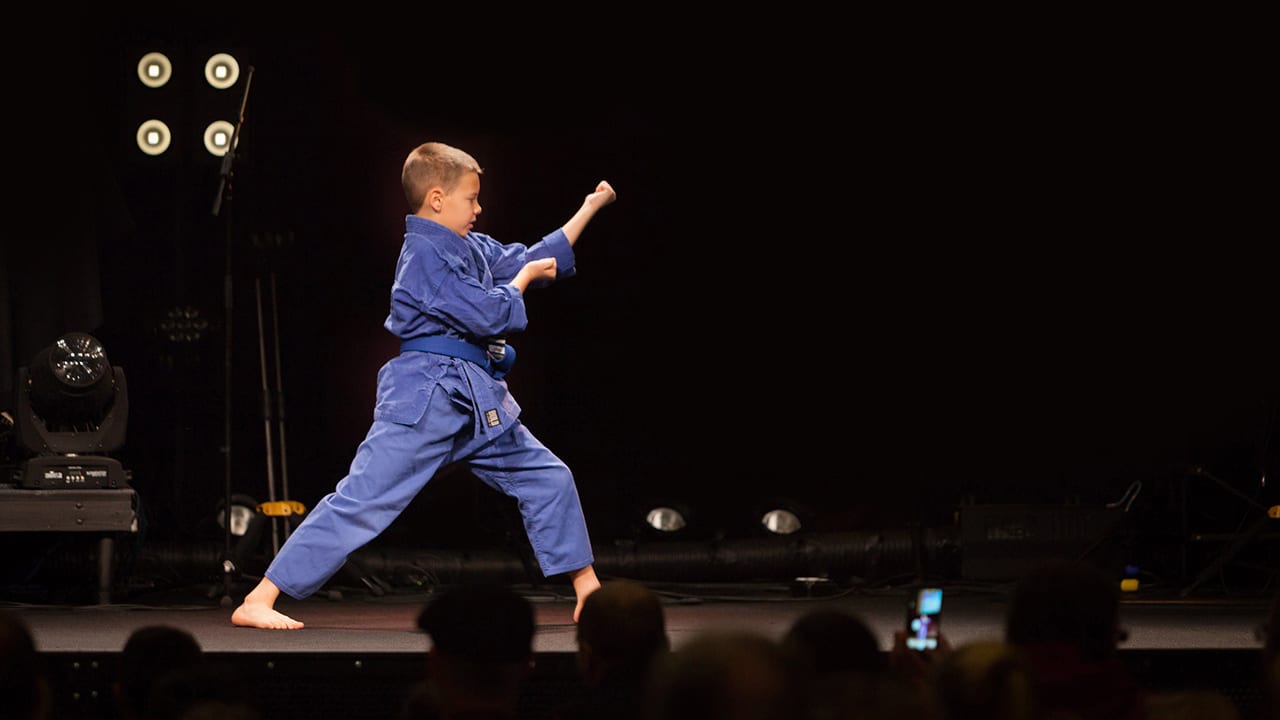Independence comes along more slowly for some people than others. Parents see it at home and school and certainly in the at the karate school. One kid is mega shy in their very first lesson. She won’t come out or follow direction from the instructor. Her brother can’t wait to learn how to punch and kick.
How do you balance one kid’s over-eagerness with the other kid’s lack?
Here’s a helpful article from childmind.org on how independence develops and matures in kids. And here are some of the things these experts say to do:
- Set predictable routines
- Let your child choose
- Let your child help
- Give your child chores
- Let your child solve problems
- Encourage projects
- Nurture free play
Now match that up with the things kids learn in karate. Little Ripples know and learn what to expect in the karate class. They can choose their own animals for the warm up animal runs. They learn to help other students by demonstrating karate forms and moves.
They also take on responsibilities. Instructors will send kids out to the aisles to introduce themselves to new people. That’s a hard skill to learn and get comfortable with. Students have to solve problems in all kinds of ways, from figuring out the arrangement of moves in a form to how to tie their own belts and lace their own karate gis (uniforms). Yes, along with self defense, karate teaches kids how to dress and present themselves. That alone can be worth the price of admission for parents.
Before earning a black belt, every student has to devise and complete a leadership project, and these projects range from fundraisers for schools and charities to education and volunteer efforts that improve the local environment and people’s lives.
Finally, free play in karate comes in the form of free sparring (of course), but also in community events like kids night in (and parents night out), the summer picnic, Spirit Week and other organized activities.
The experience of earning a black belt over four or six years builds independence in kids, no matter if they’re inclined toward hyperactivity or the opposite. If you’re curious about the black belt journey, click here to get started.



